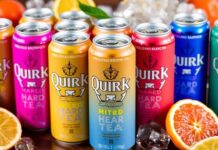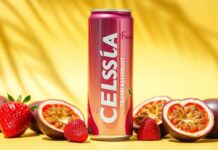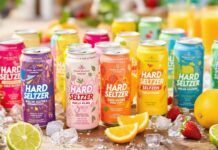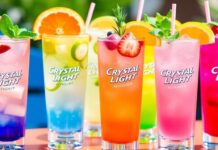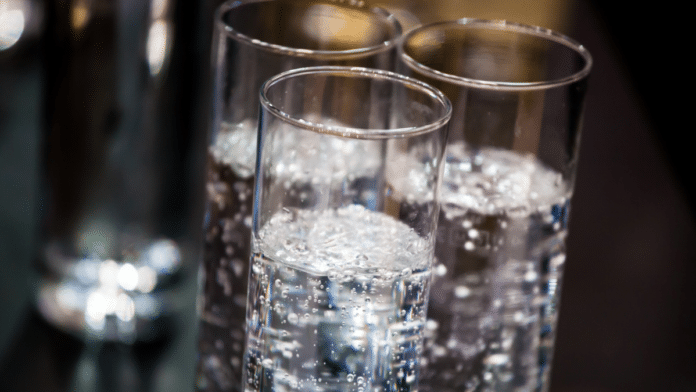Molson Coors Beverage Company is turning its trash into refreshing, fizzy treasure. As part of a commitment to sustainability, the company is recycling its carbon dioxide from brewing, and reusing it to create the beloved bubbly goodness consumers have come to expect from the alcohol behemoth’s growing line of hard seltzers.
Adopting practices that help reduce CO2 emissions is a financial win for the company and an environmental win for the future of the planet.
Carbon dioxide is a byproduct of the hard seltzer and beer fermentation process. Yeast eats sugars in the fermenter, and the output is carbon dioxide and alcohol. Brewers do a good job of capturing the alcohol, but the escaping gases have been elusive.
As necessary as the process is for brewing, CO2 emissions are an environmental concern. Greenhouse gases, like CO2, linger in the atmosphere, trapping heat close to the Earth’s surface and contributing to global warming. This phenomenon is known as the Greenhouse Effect.
Instead of allowing CO2 released during the fermentation process to be wasted, negatively impacting the environment, Molson Coors has invested in technologies that repurpose it. Repurposed CO2 is purified and compressed, a process that turns the gas into a liquid for easier storage.
The liquid is later transformed back into its gaseous state and injected into fermented hard seltzer and beer, creating the effervescent sparkle consumers enjoy.
“We need it. We use CO2 in both brewing and packaging, so if we didn’t have a way to recycle it, we’d be purchasing it all, and that would raise our costs,” the Brewing Operations Manager for Molson Coors’ Milwaukee brewery, Carl Hartman, explained. “We want to be cost competitive when we can. One of the easy ways is to recycle things where we can.”
The company estimated that “[m]ost Molson Coors breweries create about 70% to 80% of the CO2 they require, and together they produce — and reuse — about 250,000 metric tons of CO2 a year.”
Financial Benefits
By producing and reusing its own CO2, the beverage company has to rely far less on the open market’s ever-fluctuating prices. The price of carbon dioxide, like many necessary resources, has increased astronomically due to the pandemic.
The ability to repurpose CO2 will soon be more beneficial to Molson Coors’ bottom line than ever before. Earlier this year the company invested millions of dollars into its US production facilities with the goal of boosting seltzer output by 400%.
Molson Coors Canada also recently announced plans to invest $100 million towards growing hard seltzer production by 300% as well as expanding the company’s Canadian seltzer offerings.
“We’re more resilient as an organization if we’re able to use the resource we’re actually producing,” said Audrey Templeton, the Enterprise Risk Manager at Molson Coors. “There are a lot of other businesses that need CO2, so if we can use our self-generated CO2, then we’re not always competing with everyone else for a somewhat limited resource.”
Saving Money and the Environment
Investing in the expensive technology needed to recycle CO2 makes sense for giant companies like Molson Coors. Smaller breweries simply cannot afford to follow in the reduced carbon footprints of major beverage companies.
However, that might soon change with the recent emergence of more accessible technologies, including the creation of scaled-down versions of the system that better fit the needs and budgets of independent brewers.
Molson Coors’ commitment to the environment doesn’t end with the recycling of carbon dioxide. The company has created a comprehensive list of sustainability goals, all of which it hopes to achieve by 2025. The list aligns with the UN Sustainable Development Goals and prioritizes three major areas of focus — Responsibly Refreshing, Sustainably Brewing and Collectively Crafted. The list includes goals surrounding water protection and conservation, reducing the use of plastics in packaging materials, zero landfill waste, sustainable agriculture, community engagement and investment, and more.
Additionally, Coors Seltzer is committed to aiding in the restoration of 500 gallons of fresh water for every 12-pack purchased. The brand has partnered with Change the Course, a water conservation organization, as part of this initiative. Molson Coors also recently launched Coors Pure, a USDA certified organic light beer.
Organic farming processes utilize less energy and emit less pollution. Because organic products are not sprayed with chemical-filled pesticides, less harm is done to nearby crops and animal habitats.
“We are one of the most energy-efficient breweries in the world,” stated Mike Ouderkirk, the Brewing Manager for Molson’s Shenandoah facility. Ouderkirk’s facility, for instance, has not utilized landfills for almost 10 years. “From a carbon footprint standpoint, we use less electricity, less gas and we collect a significant amount of our CO2.”
We are eager to see a greater dedication to sustainability among big brewers. Molson Coors is leading by example and making decisions, like repurposing its CO2, that positively impact the planet.
- Seltzer Category Expanded for 2022 Craft Beer Marketing Awards - February 11, 2022
- Drifter Expands Portfolio with Nordic-Style Gin - January 18, 2022
- Tilray Acquires Green Flash and Alpine Beer - December 22, 2021


